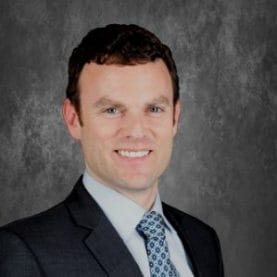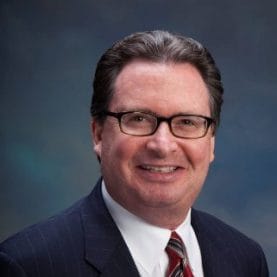During a recent “The Business of Health Care” segment on Sirius XM’s Wharton Business Radio, I interviewed two experts on government initiatives to transform primary care from volume to value and how retail clinics are intersecting with this: Michael Rovinsky, WG86, Director of Veralon, and Peter Fishman, WG07, Corporate Director of Clinical Integration at CarePoint Health. So why is this discussion of relevance? Both of these individuals are implementing initiatives that are part of a massive change in how health care is going to be delivered in the future. These initiatives are likely to stick because they are driven by market forces that improve care, its access, and lower costs. These market forces are needed if we are going to be able to afford health and health care into the future. They are designed to keep people healthy and as well, to capture patients “as annuities” for any health system. Let’s get into the specifics.

Peter Fishman
As mentioned, Peter works on clinical integration with the sole purpose of integrating fragmented care (e.g. coordinating it) so that patients are cared for properly and so they do not end up in more expensive levels of care. The types of patients Peter is working with include congestive heart failure patients, one of the most expensive conditions—mainly due to their ending up in the hospital on a regular basis. This does not necessarily need to happen as long as their care is rendered in less expensive settings such as the home. Peter is helping to facilitate this with such services as home health, which coordinates the care with the physicians. Through CarePoint, he is also involved in a government initiative called the Transforming Clinical Practice Initiative. His group is in the process of educating primary care physicians on the business aspects of keeping people healthy and getting paid for it, rather than seeing them when they are sick. These types of initiatives are needed in order for the transition from volume care to value care to take place.

Michael Rovinsky
Michael Rovinsky is working with retail clinics such as Walgreens which have set up “care clinics” in their pharmacies. Walgreens has a different retail clinic model than others (e.g. CVS, Rite Aid) in that it is partnering with health care systems so that their caregivers are located in Walgreens pharmacies. So why does this matter? Patients can come in for care when it is convenient and out of hours to resolve basic health concerns, such as checking their diabetes status or confirming whether they have strep throat. These “patients” who are cared for by less expensive caregivers such as nurse practitioners become part of the integrated pharmacy/health system. They are cared for at Walgreens, fulfill any prescription at the Walgreens pharmacy, shop at Walgreens after, and can become an “annuity” for the larger health care system with which Walgreens works. It is sort of like the Disney model, in which park goers go on a Star Wars ride and then exit into a retail store to purchase Star Wars paraphernalia.
So let’s put these two together: Physicians are beginning to treat health and be paid/financially rewarded for it. Retail clinics are capturing new patients for health systems, in a much less expensive and more convenient manner. Physicians who are part of these systems are then caring for these patients in a way that keeps them healthy and as an “annuity.” It is disruptive innovation that can make our health system healthy.


























